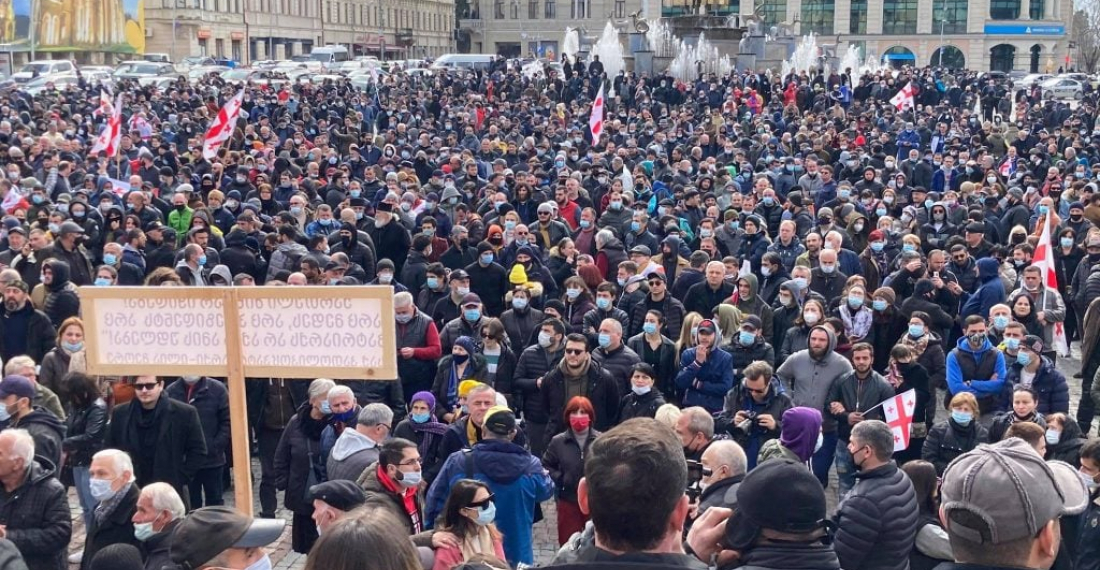Thousands of Georgians on Sunday (28 February) demonstrated in the country's second city, Kutaisi, against the construction of a Hydro-electric Power Plant (HPP) in the nearby Rioni Gorge.
Organisers of the protest said that this was apolitical. For the last 126 days protestors have camped at the Rioni Gorge to oppose the construction of the plant which they say will harm the environment.
Protestors are calling for the permission for building the HPP be revoked and for “ENKA”, the construction company of the HPP cascade to leave the region.






